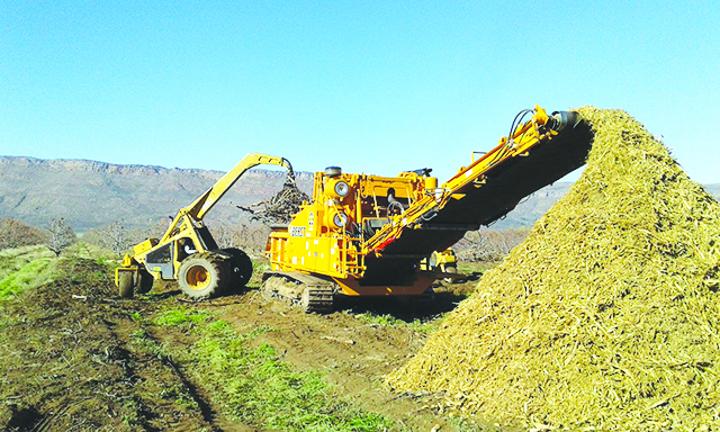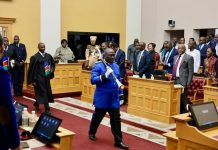Africa-Press – Namibia. THE regional councillor for the Gobabis constituency in Omaheke region, Augustinus Tebele, says the concept of bioeconomy is becoming increasingly important globally as many countries move towards sustainable energy.
Tebele said this at a one-day consultation workshop for the development of a national bioeconomy strategy for the Omaheke region held at Gobabis last week. Bioeconomy refers to the production, utilisation and conservation of renewable biological resources.It involves the conversion of these resources and waste streams into value-added products, such as food, feed, biobased products and bioenergy.Tebele said for sustainable development to be achieved, action against climate change is fundamental. “Efforts on both fronts cannot be pursued in isolation, but must be well integrated at national levels,” he said.The development of the strategy is spearheaded by the Food and Agriculture Organisation (FAO) of the United Nations in partnership with the National Commission on Research, Science and Technology (NCRST).Mbapeua Karutjaiva from the FAO said regional consultation workshops on the development of the strategy are being held to solicit input on the strategy. The development of a national bioeconomy strategy in Namibia came as a result of the global Towards Sustainable Bioeconomy Guidelines project, which the FAO is currently implementing. The global project’s objectives are to support FAO member countries in developing a coherent bioeconomy programme, including strategy development and implementation, given the importance of their agricultural sector and the use of biomass to produce energy, in addition to food, feed and fibre. The overall work entails stocktaking and analysis to establish a baseline for the bioeconomy landscape in Namibia, stakeholder engagement and workshop organisation, and the drafting of the strategy. The project is funded by the FAO to the tune of N$714 000. Giving the background of the strategy at the workshop, the biotechnology manager at the NCRST, Paulus Mungeyi, said Namibia has a rich biodiversity which could be utilised for sustainable production. This, he said, could create knowledge, science, technology and innovation, which in turn could result in products, processes and services creating employment and alleviating hunger. Mungeyi said the Omaheke region is rich in biological resources which, if sustainably used, could help Namibia achieve a bioeconomy. He said the region is, for example, rich in cattle and cattle hides to which value can be added by making products, such as shoes.Mwangala Nalisa, a senior consultant at the FAO, who presented a survey on stocktaking and analysis of the bioeconomy sector, said initial consultation on the development of the strategy resulted in six strategic focus areas. This includes bioeconomies in agricultural health, indigenous knowledge, and environmental, industrial and cross-cutting issues related to bioeconomy. The draft bioeconomy strategy will be completed by the end of July, and will be implemented from 2022 to 2026.






